recycling our childhood and calling it content
when did the entertainment industry become that one friend who only talks about their high school glory days?
Let us gather, my fellow trauma-bonded millennials who can't decide if we're still young or basically geriatric at 35, we need to talk about our collective obsession with reliving the past.
The Little Mermaid, The Lion King, Space Jam, Gossip Girl, iCarly, Saved by the Bell, Full House, Bel-Air, Friends, Buffy, Dawson’s Creek, Seinfeld, Gilmore Girls, Party of Five, The X Files, Charmed, The OC, The Nanny, Rugrats... need I go on?
The entertainment industry has basically become that one friend who only talks about their high school glory days. There is, however, something rather comforting about seeing Lindsay Lohan back on Netflix making cheesy Christmas rom-coms. We crave the familiar dopamine hit of hearing the Friends theme song. The nostalgic Bat-Signal has been lit, and we're all responding like it's the one text we'll never leave on read.
Why though?
Trauma Response or Entertainment Trend?
We Millennials are a generation raised on the promise of ‘you can do anything’ only to graduate into a recession, survive a pandemic, face a housing crisis that makes homeownership feel like a fantasy side quest, and witness democracy crumbling faster than our parents' Facebook feeds.
Is it any wonder we're desperately reaching for that worn VHS copy of Jurassic Park?
Nostalgia is emotional comfort food, our cookies and cream ice-cream (or flavour of your own choosing). When everything feels like a dumpster fire with extra flames, we retreat to the predictable world where we know that Ross and Rachel eventually figure it out, Batman saves the day, and Britney is just making bangers.
When ‘Play It Again’ Becomes Self-Care
There's a reason our Netflix algorithm is judging us for starting Gilmore Girls from the beginning for the seventh time (guilty).
In a world where opening social media feels like voluntarily popping your head in a blender, retreating to Stars Hollow's quaint town square and Luke’s Diner for some coffee feels less like entertainment and more like necessary emotional regulation.
The data doesn't lie. During the pandemic lockdowns, we know the streaming of comfort shows skyrocketed. The Office, Friends, New Girl, The OC, these weren't just shows anymore; they were emotional support animals in digital form.
We knew exactly when Seth Cohen would say something adorkably pretentious on The OC, we could recite Paris Geller's meltdowns verbatim, and found a strange comfort in knowing that no matter how bad our day was, at least we weren't Jim having to deal with yet another of Michael Scott's concerning ideas.
This isn't laziness. It's strategic emotional management. Each rewatch offers the particular comfort of absolute certainty – a feeling that is very noticeably absent from real life right now.
We know Summer will forgive Seth eventually. We know Luke and Lorelai are endgame. We know exactly which episode of Friends will make us laugh when we're on the edge of doom-scrolling ourselves into an existential crisis.
Psychologists call this ‘predictable pleasure’ – the satisfaction of anticipating a positive emotional response and then receiving exactly that. And in a world where nothing feels certain, there's profound relief in knowing exactly how something will make you feel.
Play It Again Profiteering
As much as we would like to cling to a modicum of goodwill in the world right now, studios aren't feeding our nostalgia addiction because they care about our mental health.
They're doing it because it's damn profitable.
Why risk millions on an original concept when you can just create a marketing campaign that says ‘remember this thing you liked and felt comforted by in your childhood? on a poster and watch millennials with disposable income (lol) line up? Disney's basically printing money with their live-action remakes, even though most of us walk out thinking the original was better.
Let's do some math:
The Lion King’s 2019 remake made $1.6 billion worldwide
Beauty and the Beast in 2017 made $1.2 billion worldwide
And quote the iconic Mastercard ad of the Millennial era… Your childhood memories? Priceless (but actually very precisely valued by marketing departments).
Nostalgia is the ultimate cheat code to skip the increasingly complex and ever evolving ‘find and build your audience’ part of the marketing funnel.
Hello. It’s Us. We're Part of the Problem.
Before we get too judgmental about corporations exploiting our emotional attachment to childhood memories, we should probably acknowledge our own role in this cycle.
We complain about the lack of originality while simultaneously losing our minds when Netflix announces a new season of Stranger Things. We write think pieces about Hollywood's creativity crisis while buying tickets to whatever Marvel is remaking next.
Our group chats light up with ‘OMG did you see they're bringing back [insert show we watched after school in 2000]?!’ faster than we can say ‘this is obviously a cash grab but I'm still going to watch every episode.’
Because who needs any more self awareness when the world is on the verge of implosion?
Recycle + Stifle
Here's where things get a bit depressing, but hey, what’s new?
Our obsession with recycling content might actually be preventing new, original stories from being told. The entertainment ecosystem has limited resources, and every reboot of Sabrina the Teenage Witch potentially means some fresh, innovative concept doesn't get greenlit. I did enjoy the darkness of the Sabrina remake, though.
It's akin to becoming fast fashion - quickly produced, consumed, discarded, and ultimately unsustainable.
The question then becomes… Are we creating any new nostalgia for future generations? What will Gen Alpha reminisce about? The twelfth Spider-Man reboot? Season 47 of Stranger Things where the entire cast is in nursing homes but still fighting interdimensional monsters? I’d actually watch that.
Romanticising The Revival Era
Perhaps the weirdest part of millennial nostalgia is how we've managed to romanticise periods we barely experienced firsthand.
The Y2K aesthetic revival is being led by Gen Z kids who were literal infants during the actual Y2K era.
Sidebar: If you weren't actively worried about all technology simultaneously failing at midnight on December 31, 1999, are you really experiencing Y2K nostalgia?
Meanwhile, millennials are out here reminiscing about the 80s and 90s and even some of the 00s. We're nostalgic for a synthetic version of the past we experienced primarily through nostalgic media made by Gen X and Boomers.
It's a nostalgia inception, and we need to recognise there's something weird about feeling emotional about a time period we experienced through Stranger Things, which is itself a nostalgic interpretation of the '80s.
This isn't to say all nostalgic content is bad. God no. Some is glorious. When done well, reboots and revivals can meaningfully extend stories we love while adding new dimensions. The best nostalgic content acknowledges both our affection for the past and our complicated present. It doesn't just recycle, it recontextualises.
But, dare I ask, is our millennial nostalgia creating anything of lasting cultural value?
Will people in 2050 look back at our obsessive reboot culture with the same fondness we feel toward the original content? Will they reboot our reboots? Like The Lion King (2063) and a reboot of the reboot of the animated film inspired by Hamlet?
The most likely scenario is that the specific objects of our nostalgia won't endure, but the emotions they evoked will. Future generations might not care about Friends specifically, but they'll understand the comfort of returning to familiar stories during uncertain times.
And I think that’s OK.
The Nostalgic Future We Deserve
If we're going to be trapped in this reboot cycle (and we are), can we at least demand better quality remakes? If we're mining the past, let's be creative archaeologists about it.
Instead of frame-by-frame remakes, let's see more subversive takes like Derry Girls did with '90s nostalgia by using the setting to tell fresh stories that couldn't exist in any other era.
Let's demand nostalgic content that doesn't just exploit our memories but enhances them. Let's support revival projects that give platforms to voices that were marginalised in the original versions.
And please, let's occasionally take a risk on something completely new. The most beloved nostalgic properties were once original concepts too.
In Conclusion: It's Complicated (Just Like Our Facebook Relationship Status Circa 2008)
Our relationship with nostalgia is basically the ‘it's complicated’ of cultural phenomena. We know it's potentially problematic, often exploitative, and possibly preventing cultural evolution... but it also feels healing in the moment.
So let's enjoy our Scream reboot-sequels and Fresh Prince reimaginings, but also champion original voices and stories. Let's acknowledge that while revisiting the past can be comforting, we need to keep moving forward.
Today’s original content is tomorrow's nostalgia. And if we don't create new things worth remembering, future generations will have nothing to reboot. And then how will they avoid dealing with their own apocalyptic present?
Now if you'll excuse me, I must return to watching Gilmore Girls for the 64th time, but like millennial pink and side parts, some habits die hard.
Who wrote this?
Meet Toyah - the arts and culture champion who's out here proving that robots haven't taken over (yet). While she's casually collecting leadership titles like they're vintage band tees, her real superpower is making the arts and culture accessible to everyone. Armed with a Masters degree and scholarships from fancy business schools in Melbourne and London, she's become the go-to voice for shaking up the cultural scene. Her motto? ‘Humans not robots’ - because let's be real, when was the last time AI wrote a symphony that made you cry?
Growing up, Latoyah discovered that art wasn't just for gallery walls and concert halls - it's the stuff that makes life actually worth living. Now she's taking that childhood obsession and turning it into a full-blown mission to make sure everyone gets their slice of the creative pie, regardless of their story. When she's not busy being an actual boss, you'll find her dropping knowledge bombs at local and international conferences, teaching the next gen of culture warriors at Melbourne's top unis and dropping feminist explorations over on her Substack. Think of her as your arts accessibility and community queen but make it human.



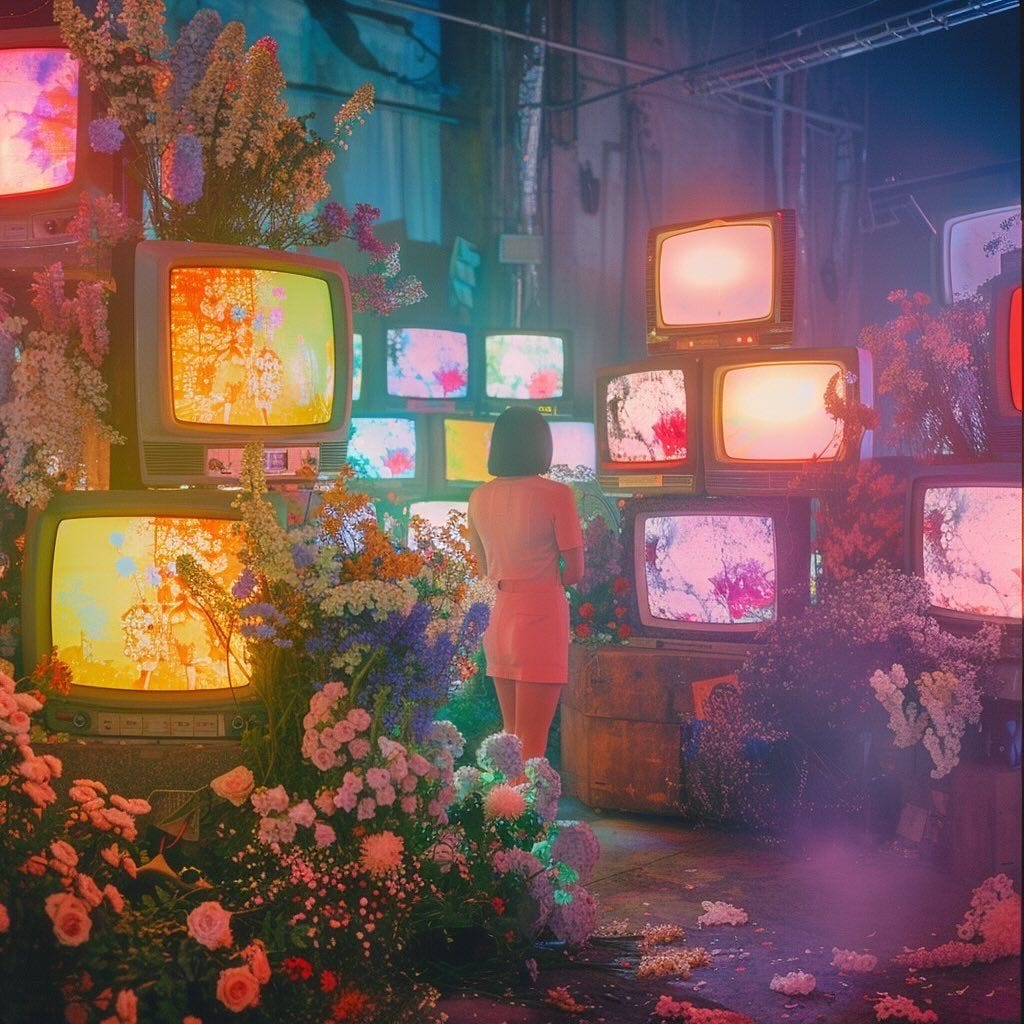


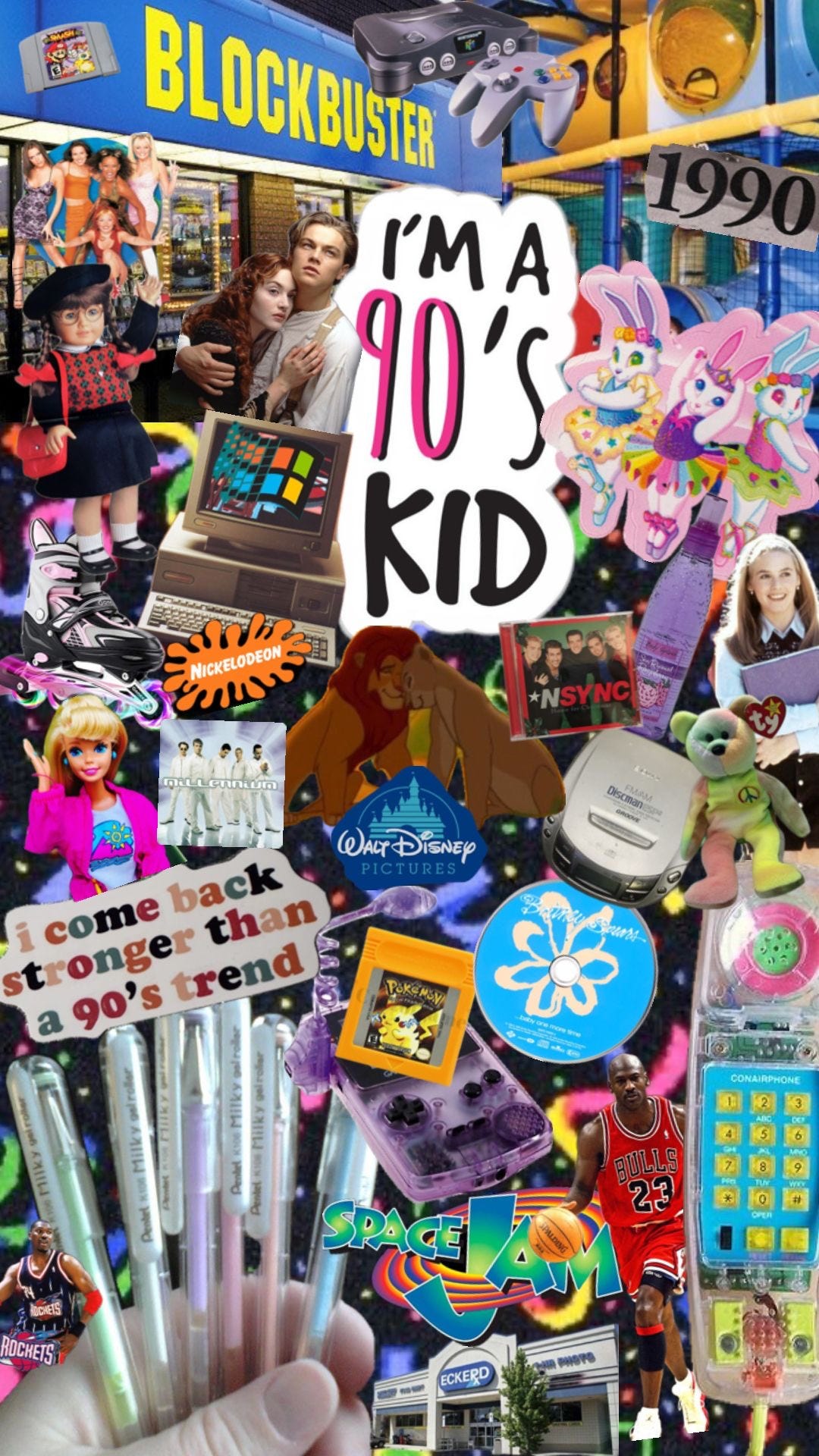
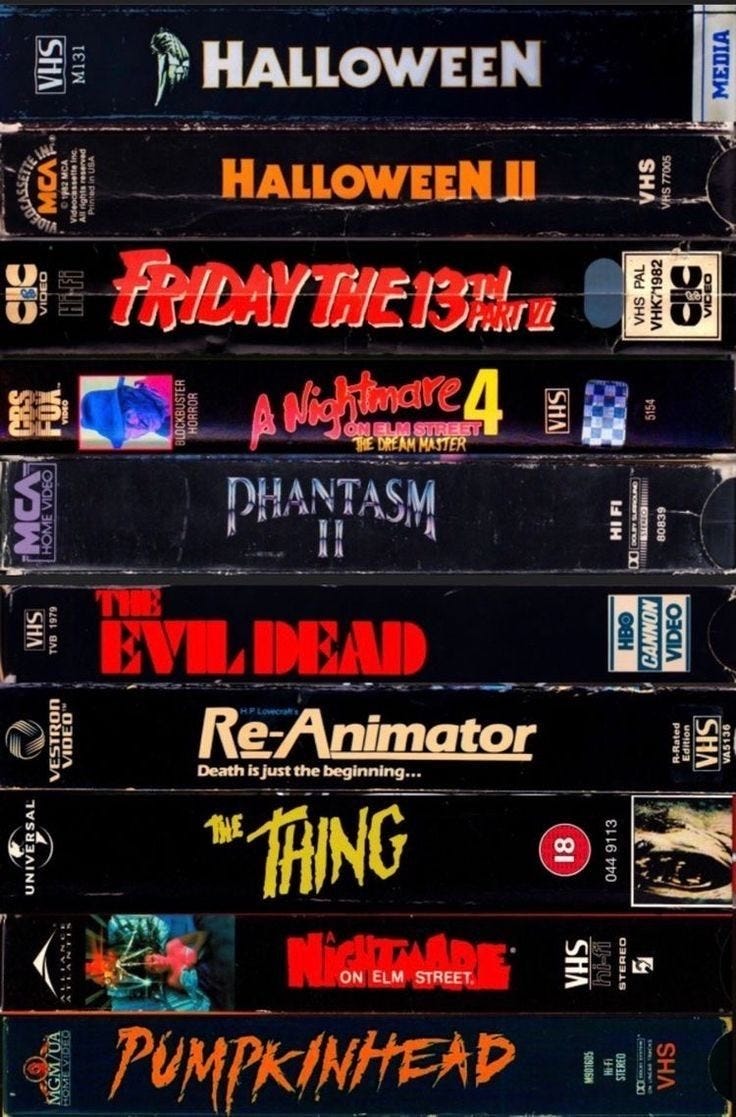
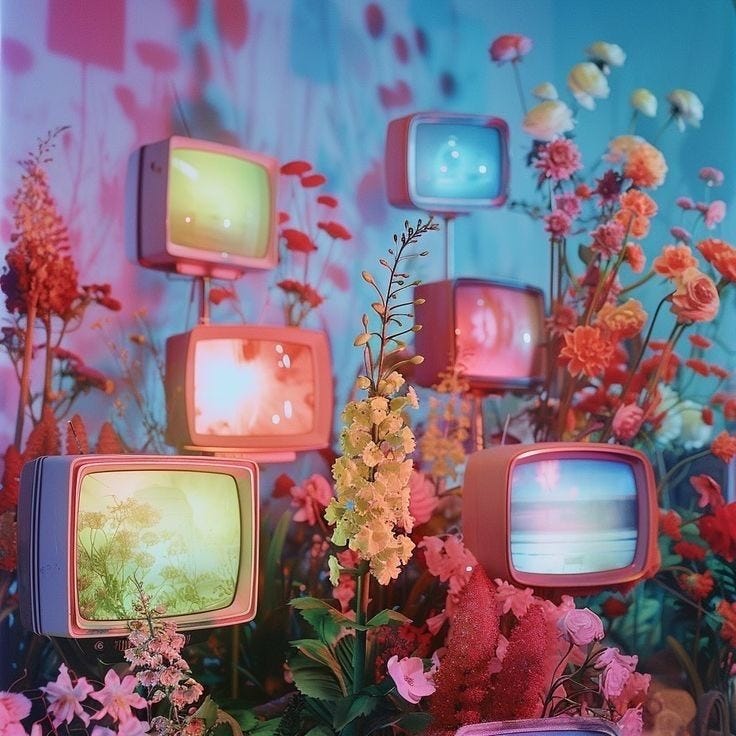
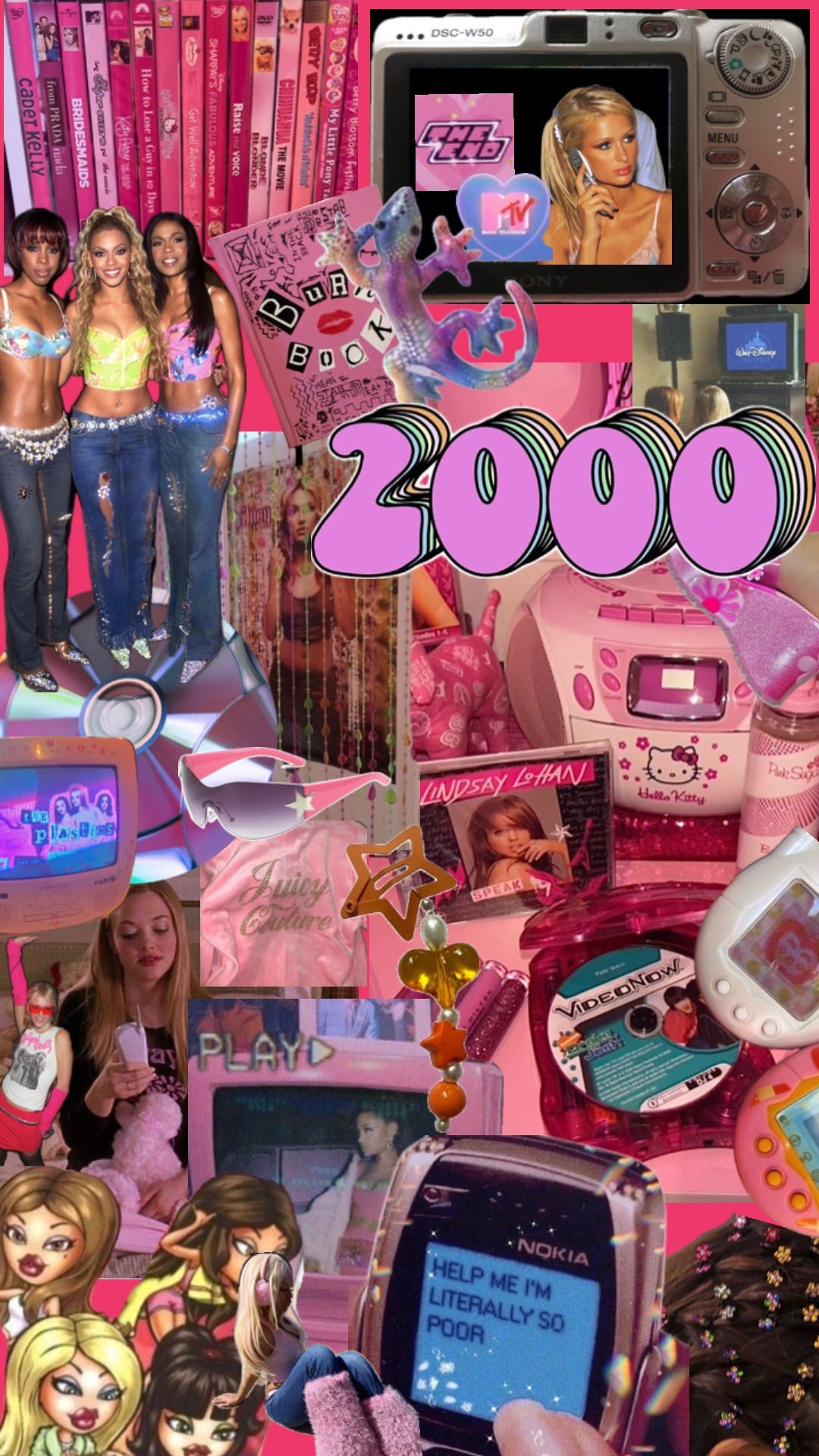
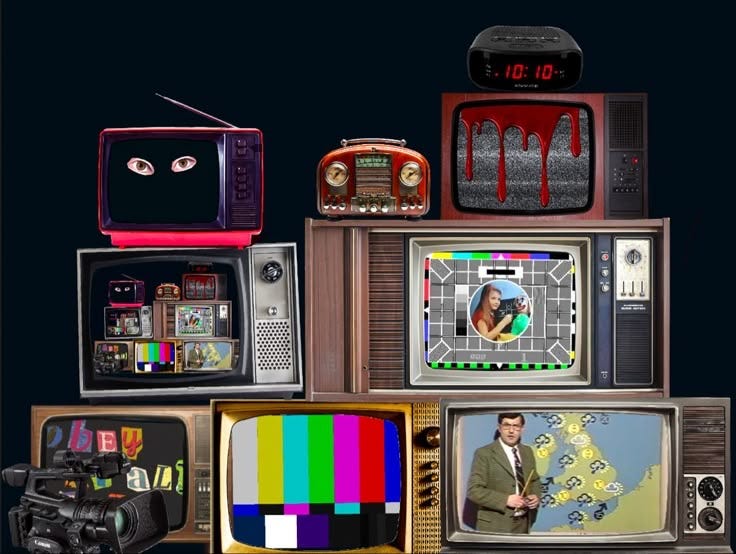


another aspect in terms of rewatching is knowing a series has a decent amount of episodes/seasons, and hopefully that it was wrapped up in a satisfying way and not abruptly canceled.
older shows that still had 22-24 episode seasons, and where you know the exact number of seasons and when you're on the series finale (or go in already knowing the finale is notoriously bad, hellow HIMYM), can be easier to get invested in than 8 episodes of a new show, reboot or original, that seems highly likely to get canceled before the first season jitters are worked out.
it’s 3am. i just smoked 2 bowls as i got this notification. this is a gift from the universe